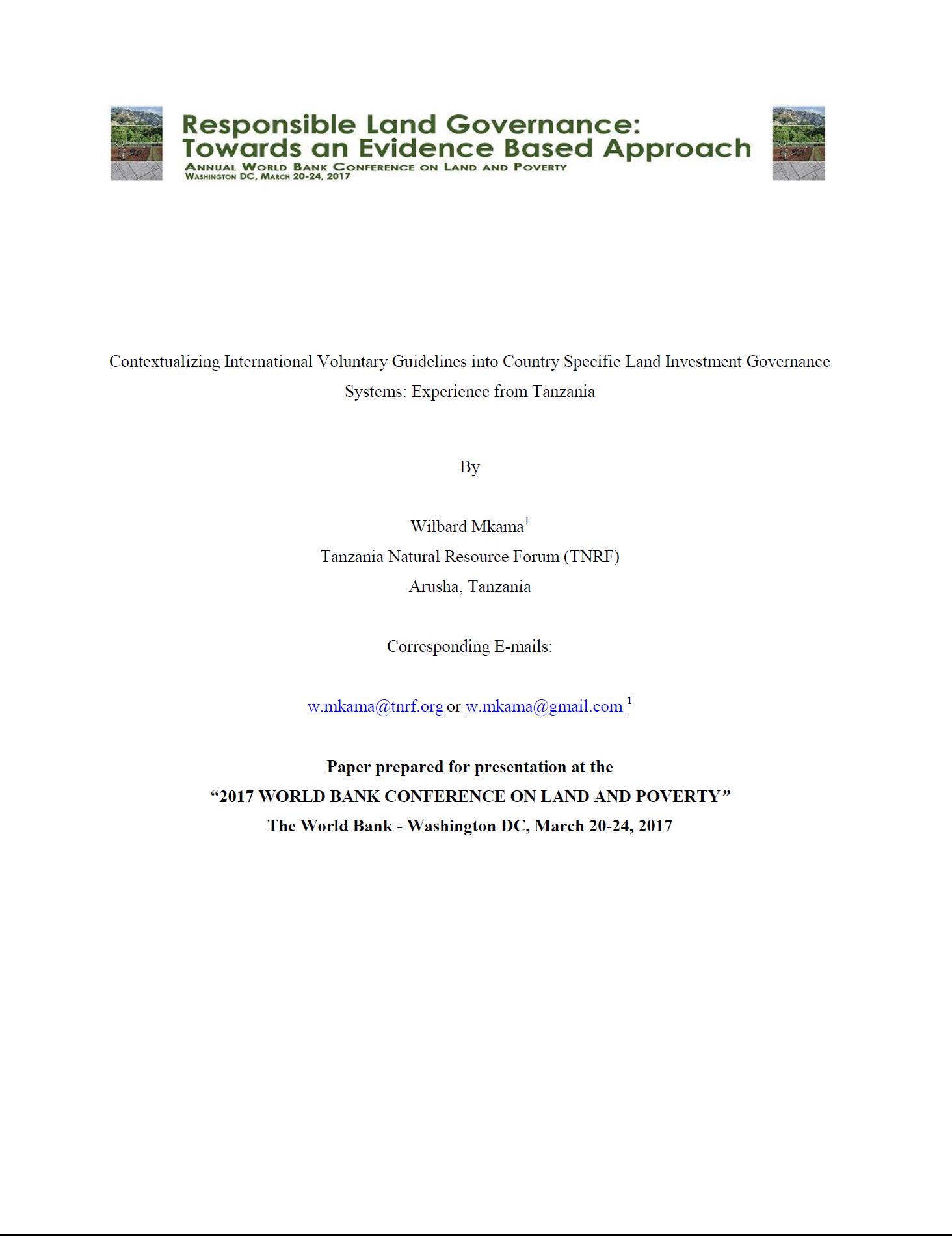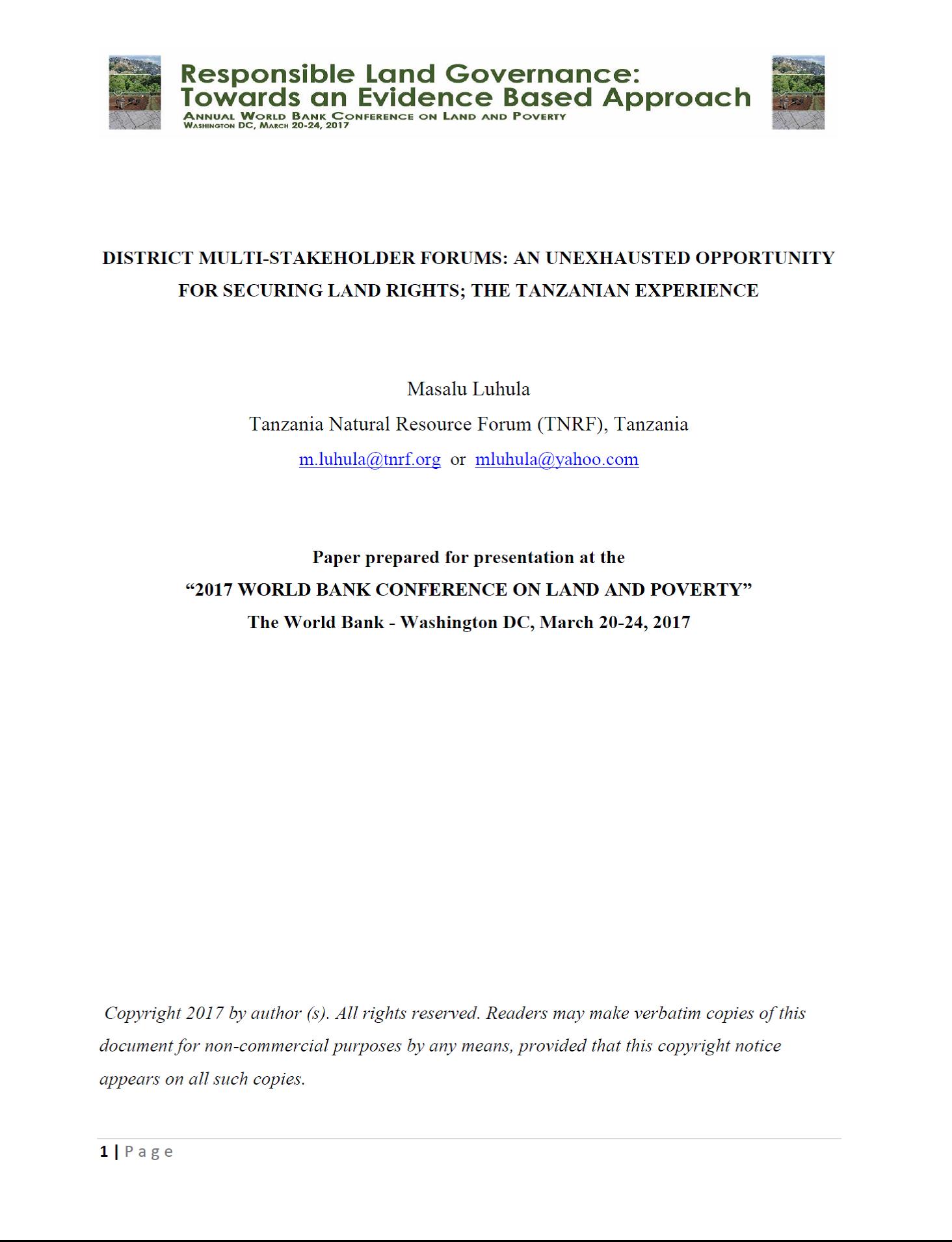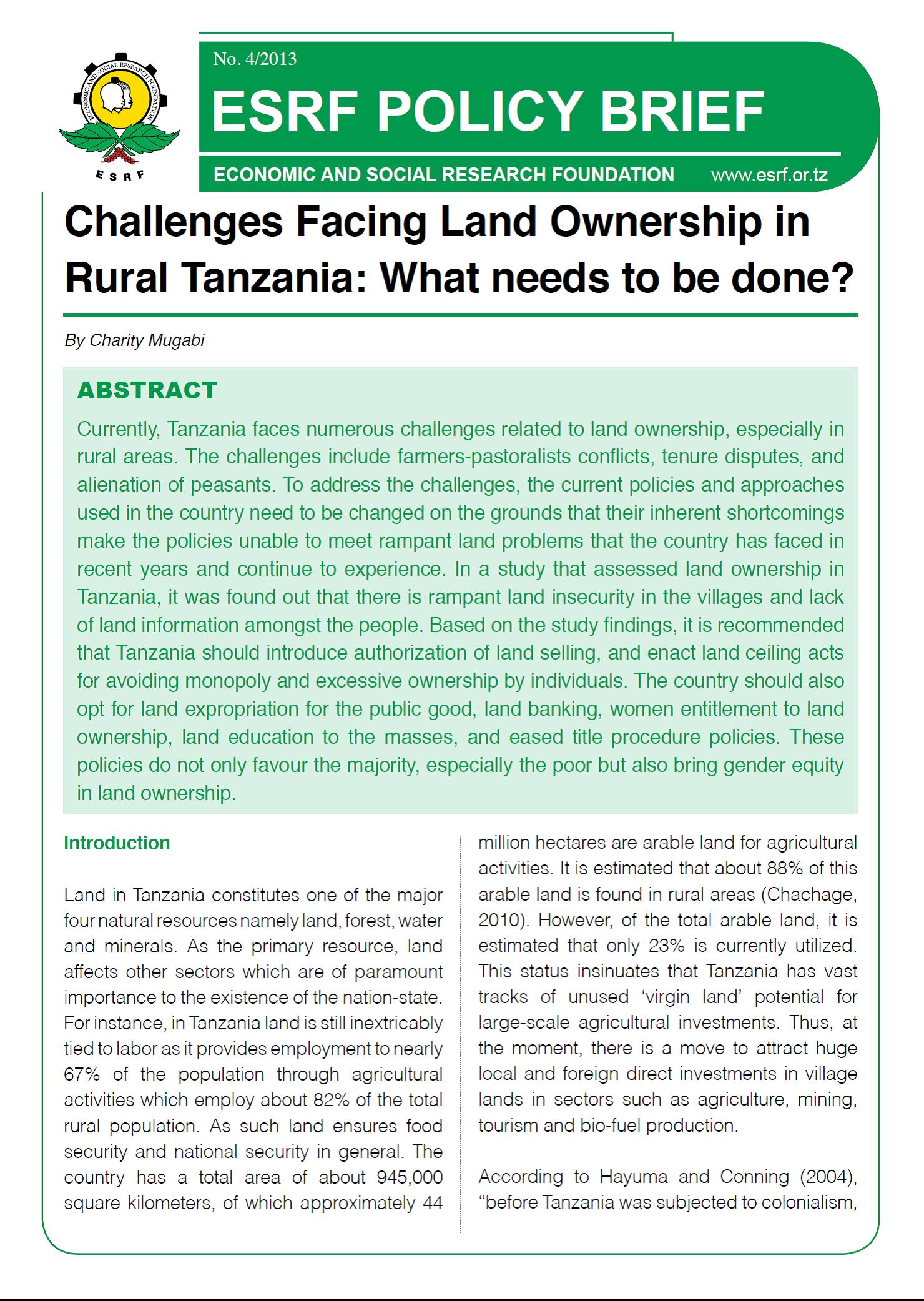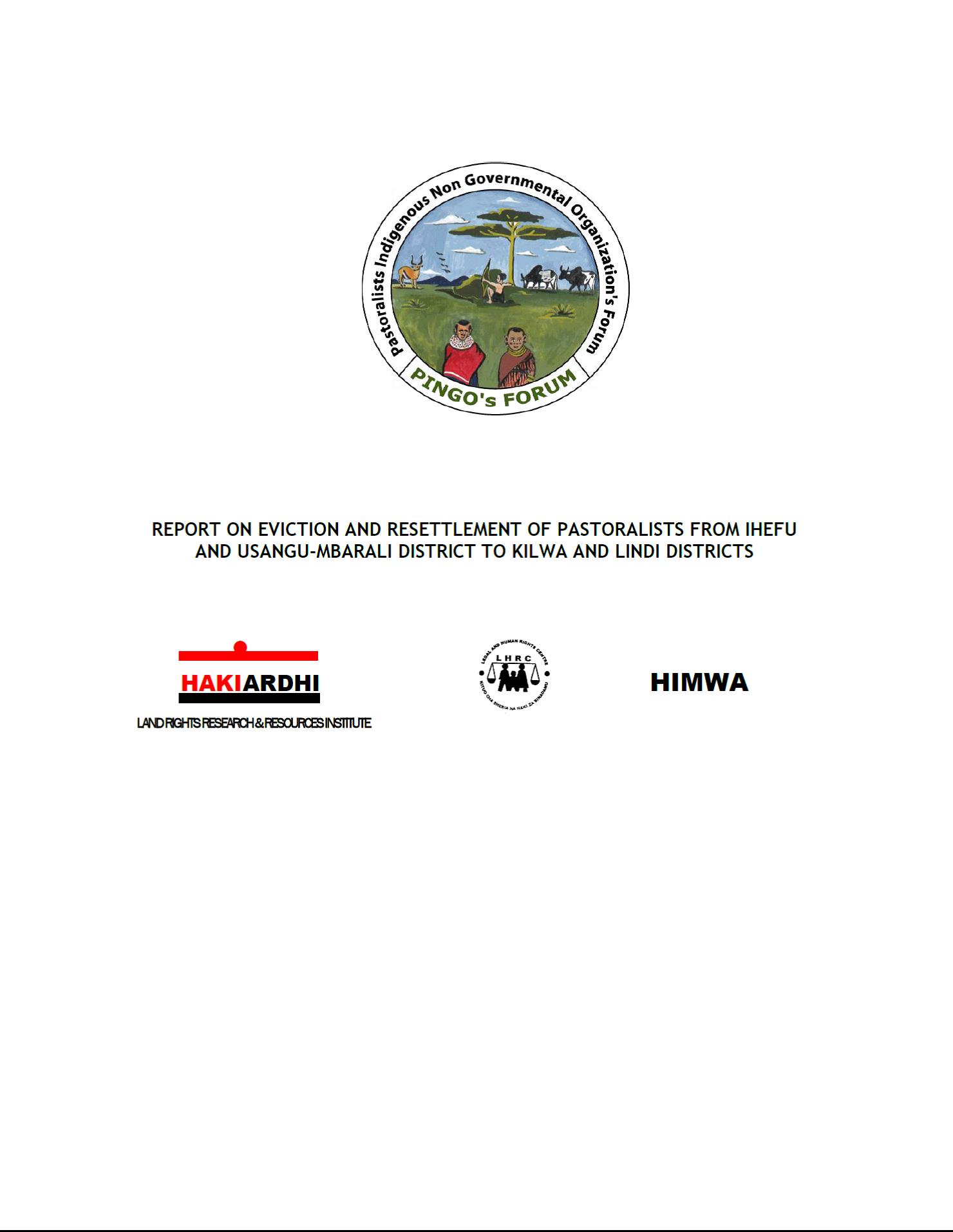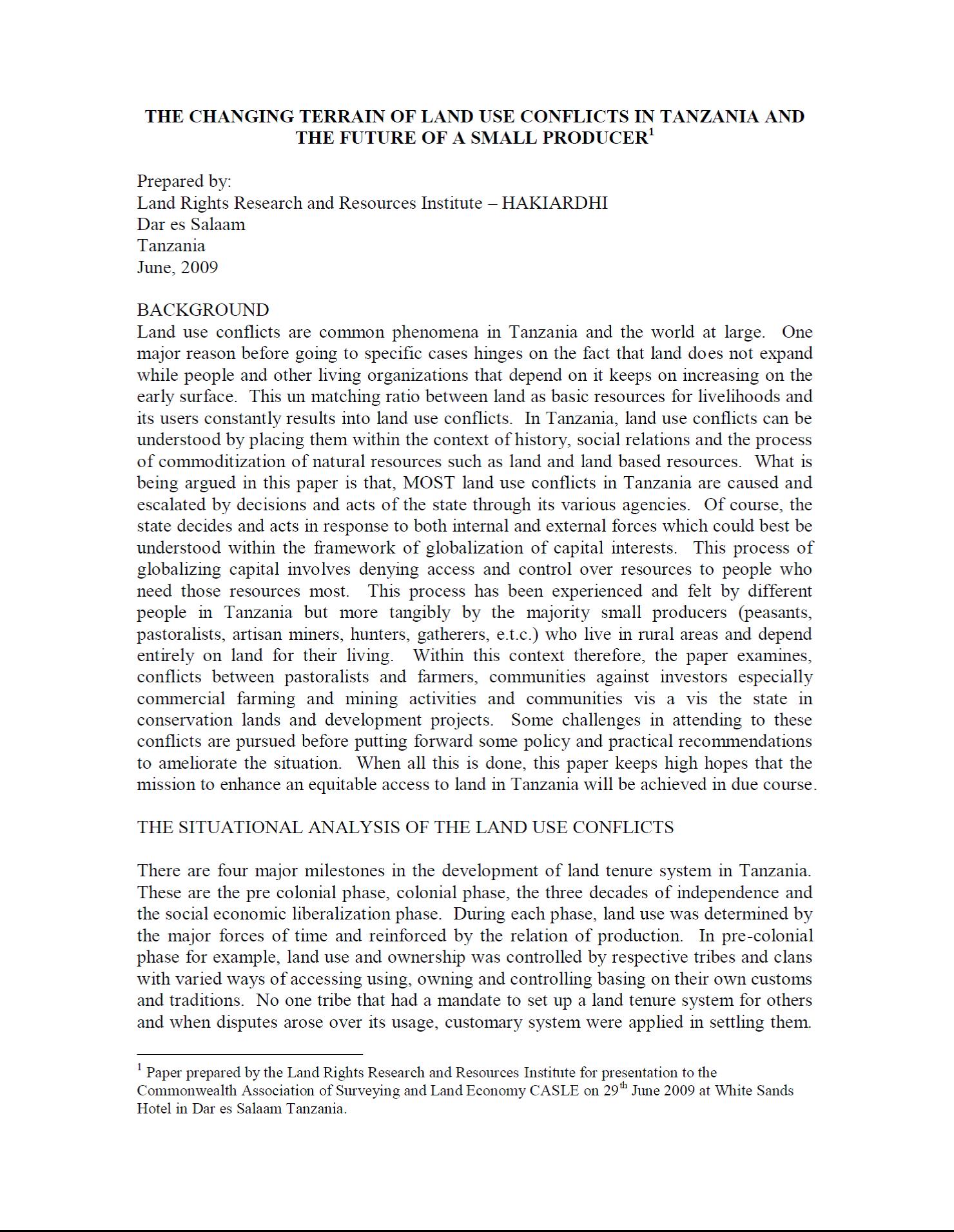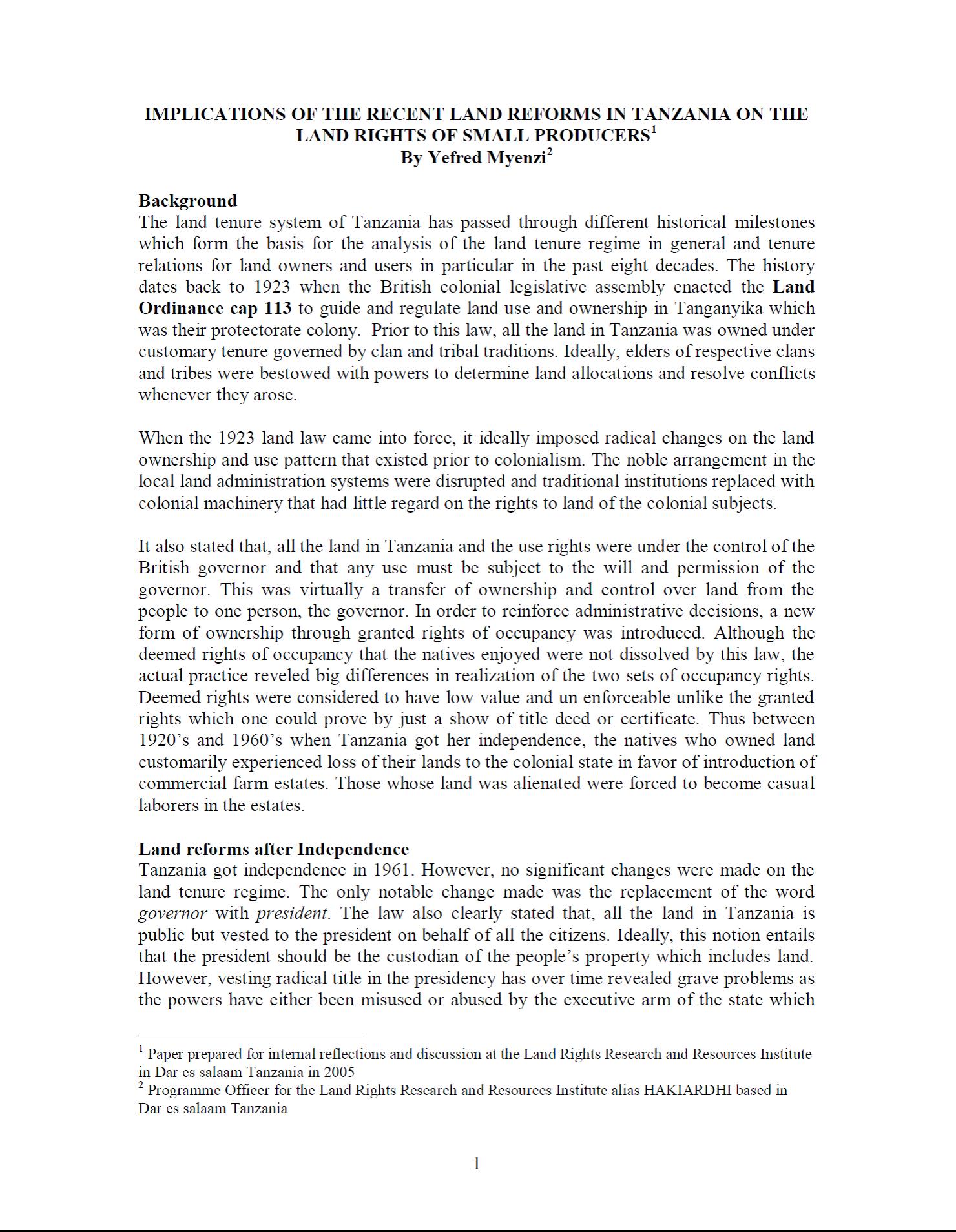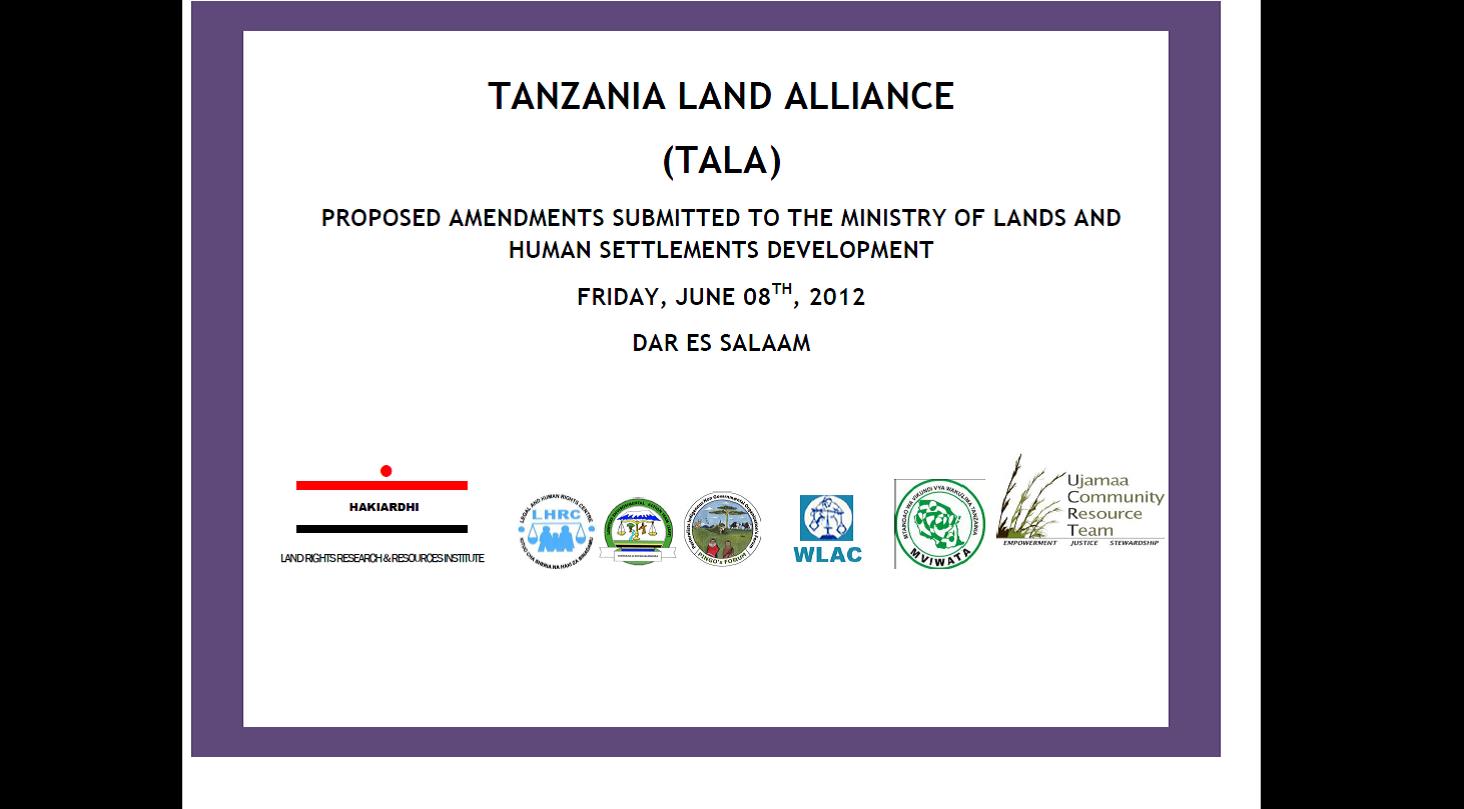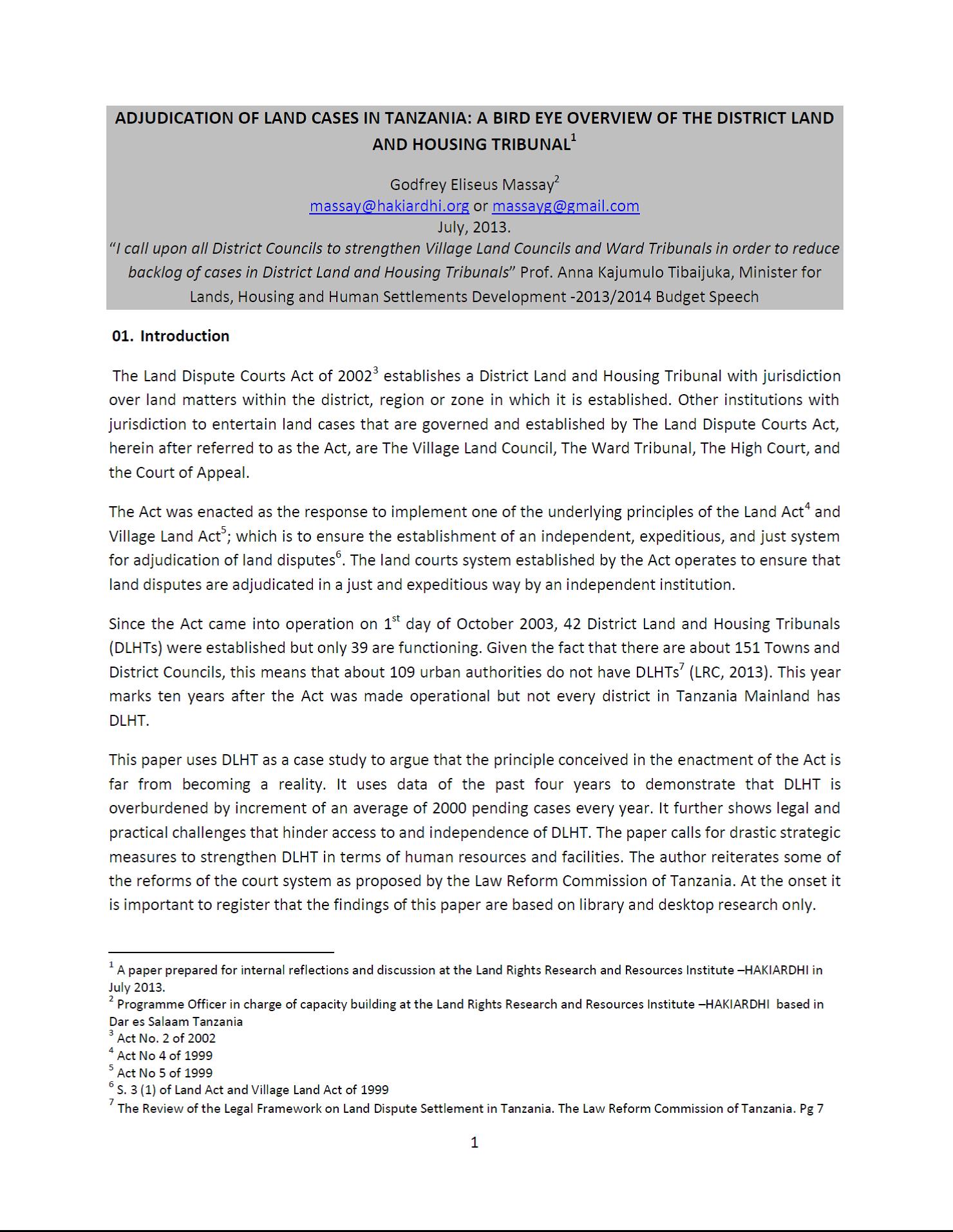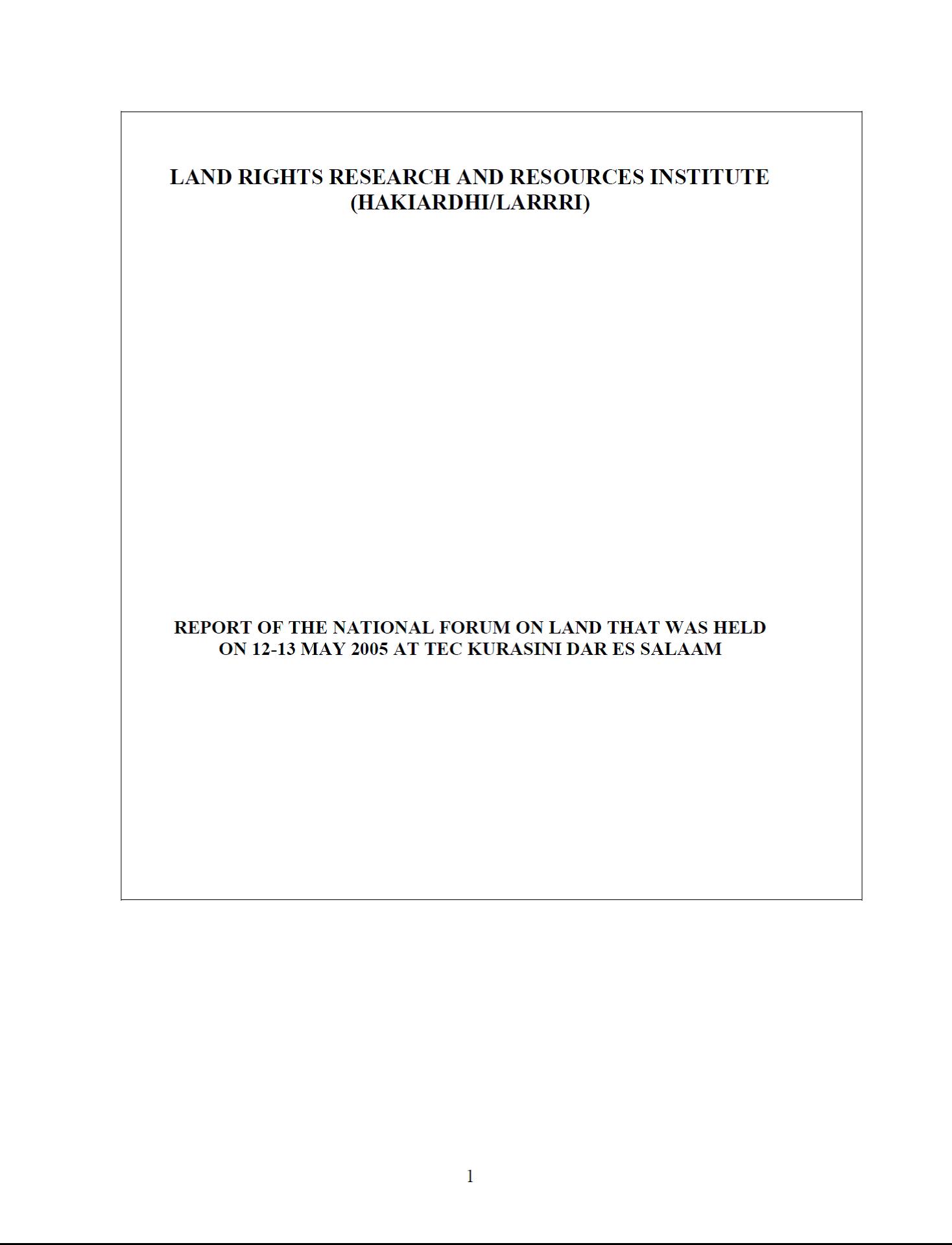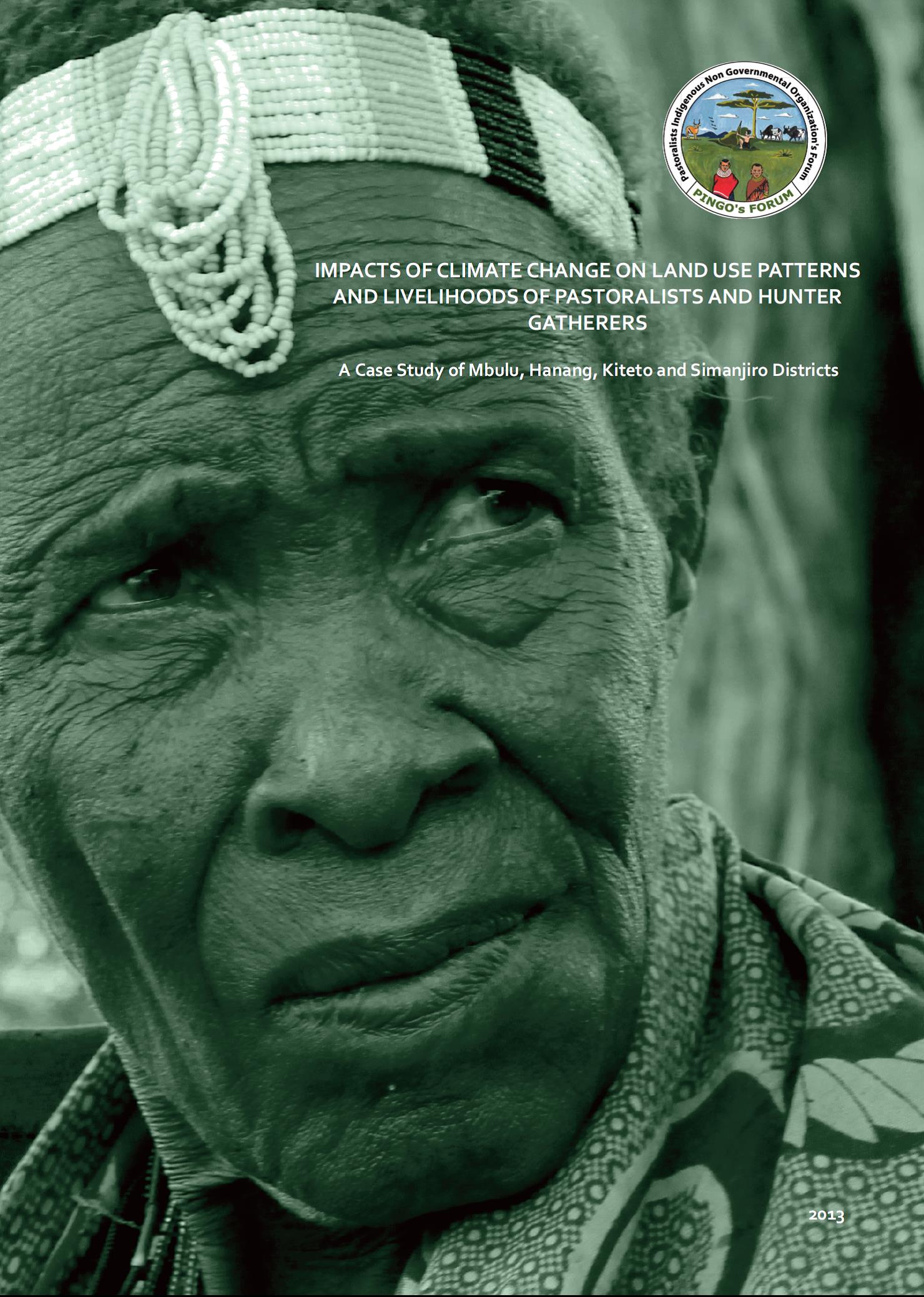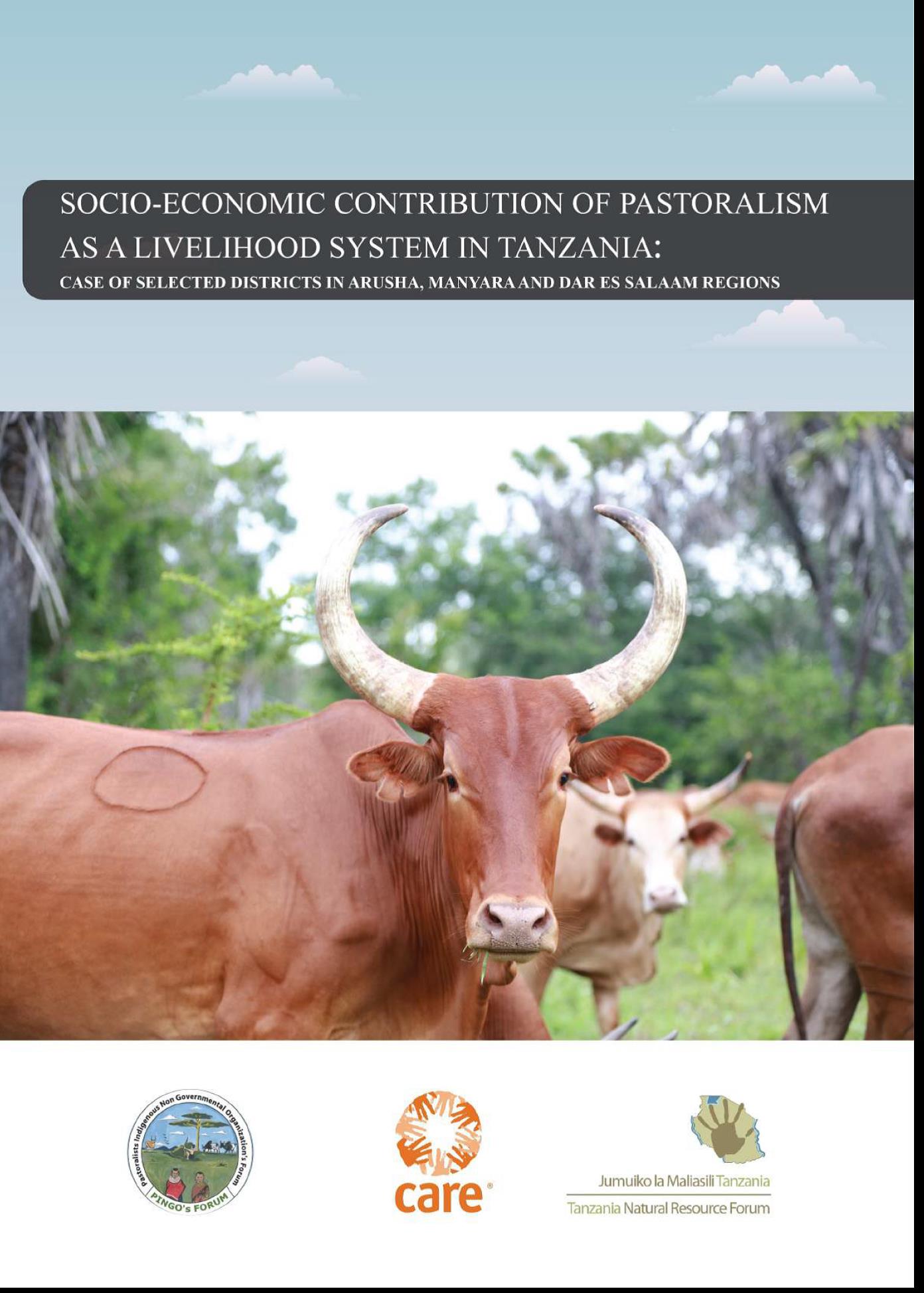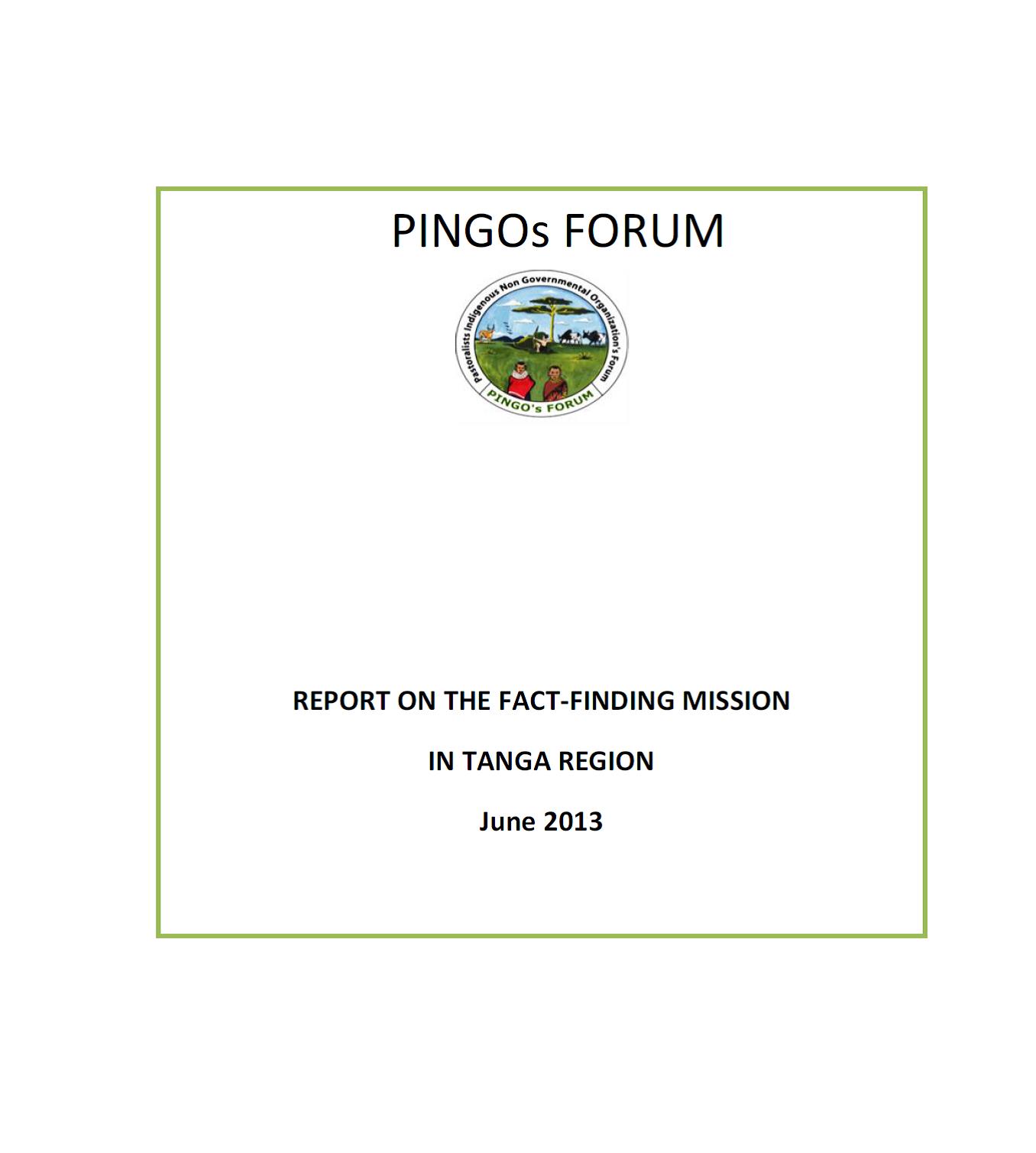Contextualizing International Voluntary Guidelines into Country Specific Land Investment Governance Systems: Experience from Tanzania
This preliminary study involved consultation of responsible district government officials and relevant Civil Society Organizations (CSOs) on various issues related to land and investments. Among other areas, the Southern Agricultural Growth Corridor of Tanzania (SAGCOT) was selected as a study site and study used the Focus Group Discussions (FGDs) to obtain information. Questionnaire designed reflected land investment governance process thematic areas.

